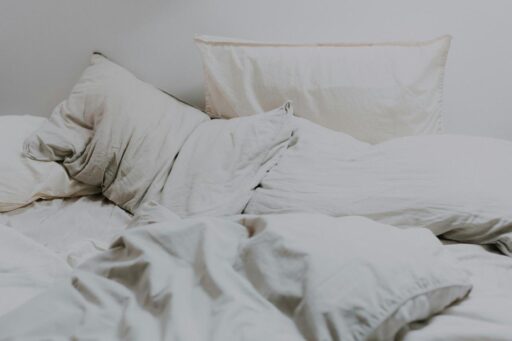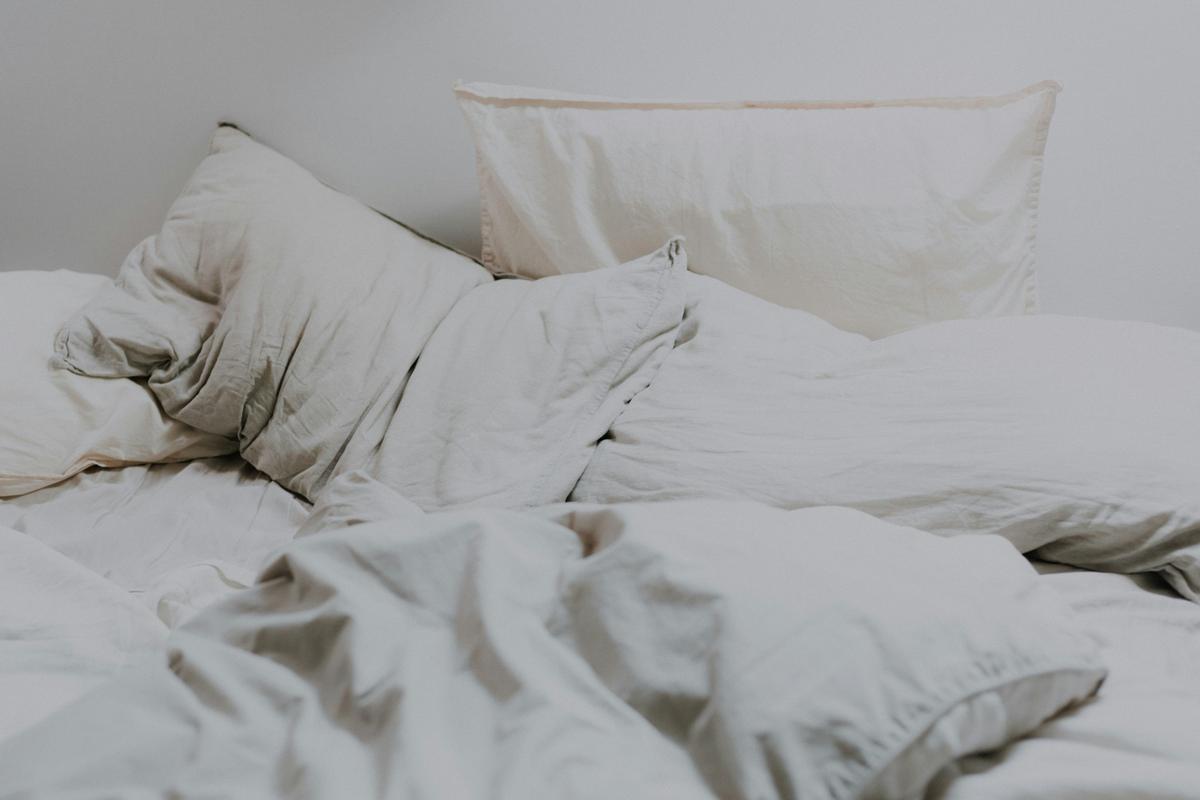Managing Menopause Sleep Problems
Healthy’s Summary
If you’ve hit perimenopause or menopause and find yourself wide awake at 2 a.m. (again), you’re not alone. Menopause sleep problems are real—and seriously frustrating. Between hot flashes, night sweats, mood swings, and midnight overthinking, restful sleep can feel like a fading memory.
The good news? You’re not at the mercy of your hormones. There are real strategies (and some surprising science) that can help you reclaim your rest. This article dives into why sleep goes sideways during menopause, what’s actually happening in your body, and how you can gently course-correct.
We’ll talk about hormone shifts, lifestyle tweaks, evidence-based tools, and the one thing most people forget to address. If you’re tired of being tired—and you’re pretty sure melatonin isn’t cutting it—this one’s for you.
Why Does Menopause Mess with Sleep So Much?
Let’s start with the basics: menopause sleep problems usually show up during perimenopause (the transition phase) and can stick around postmenopause. The root cause? Hormones. Specifically, declining estrogen and progesterone levels.
- Estrogen affects how your body regulates temperature. So when it drops, night sweats and hot flashes ramp up—and boom, you’re wide awake, drenched, and kicking off the covers.
- Progesterone has a calming effect. It’s like nature’s sleep aid. When that declines too, anxiety and restlessness can sneak in.
Add to that shifting cortisol patterns (your stress hormone), bladder changes, and mood fluctuations—and sleep gets messy. According to the National Sleep Foundation, up to 61% of postmenopausal women report regular insomnia.
But this isn’t just about being tired. Long-term sleep loss can affect everything from metabolism and heart health to memory and emotional resilience.
Still exploring symptoms? Try to connect the dots in our article ‘Early Menopause Symptoms: What to Know So You Don’t Miss the Signs‘
What Helps with Menopause Sleep Problems—Naturally?
If you’re wondering “what actually works?”—here’s the deal: when it comes to menopause sleep problems, it’s rarely one silver bullet. But a combo of changes can make a huge difference. Think of it like building a toolkit.
1. Cool Down the Bedroom
A drop in core body temp helps signal sleep. Try keeping your room around 65°F, using cooling sheets, or even a chill pillow. It might sound basic, but the effect is real.
2. Don’t Underestimate Sleep Hygiene
Yes, you’ve heard it before—but it matters more now than ever. No screens 30–60 minutes before bed, go to bed and wake up at consistent times, and dim the lights in the evening.
3. Cut Caffeine and Alcohol (or at Least Rework Timing)
Caffeine lingers longer as we age, and alcohol (even if it helps you doze off) messes with sleep cycles later in the night. If you’re having menopause sleep problems, try stopping caffeine by noon and limit alcohol to 3–4 hours before bed.
4. Mind the Hormones
If sleep issues are intense, it’s worth having a conversation about hormone therapy. According to Mayo Clinic, estrogen therapy can improve sleep for some women—but it’s not for everyone, so work with your doctor.
5. Try CBT-I
Cognitive Behavioral Therapy for Insomnia (CBT-I) is one of the most effective, lasting fixes for chronic sleep problems—and works even when hormones are a root cause. Studies from NIH suggest CBT-I improves sleep without side effects.
6. Move More—But Not Too Late
Daily movement (especially earlier in the day) helps regulate circadian rhythm and reduce anxiety. But exercising too close to bedtime can backfire, so time it wisely.
What Can I Take for Menopause Sleep Issues?
It’s tempting to reach for sleep supplements to deal with menopause sleep problems, and in some cases, they help. But not all are created equal, and they don’t fix the root of the problem. Best to check with your doctor before starting any supplement or medication routine for sleep.
- Melatonin: Helpful short-term, especially if your internal clock is out of whack. Use it low-dose (0.3–1 mg) and not forever.
- Magnesium: This mineral supports relaxation and muscle function. Some women find it helps calm the nervous system at night.
- L-theanine or Ashwagandha: Both can reduce anxiety and stress, supporting better sleep quality.
- Prescription Sleep Aids: These may offer short-term relief, but they come with side effects and shouldn’t be a long-term plan unless under close medical guidance.
Always loop in your provider before starting something new—especially if you’re already managing other conditions or meds.
Ask Healthy
What Else Can Cause Menopause Sleep Problems at This Stage?
Here’s the curveball: menopause sleep problems aren’t only about hormones. Sometimes, it’s about what menopause unearths.
For example:
- Sleep apnea risk increases postmenopause (especially with weight changes).
- Anxiety or depression may surface or worsen.
- Thyroid function can fluctuate and affect energy or restlessness.
So if you’re trying all the usual fixes and still not sleeping? It’s worth digging deeper.
Sleep quality can impact all aspects of your life. Explore other effects of menopause on your wellbeing with our article ‘The Impact of Menopause on Mental Health‘
A Final Thought
Menopause doesn’t have to mean endless nights of tossing and turning. Yes, hormone shifts cause chaos, and menopause sleep problems—but that doesn’t mean you’re stuck. From bedroom tweaks to therapy and targeted supplements, you’ve got options. And the best part? Addressing menopause sleep problems can improve your mood, energy, focus, and overall quality of life.
You don’t need to figure it all out at 3 a.m. on your own. Start simple, track what helps, and if you’re still stuck, talk to a pro. You deserve good sleep—at every stage of life.
Want to dig deeper?
Let’s Work on Your Sleep
Tired of tossing and turning? “Let’s Work on Your Sleep” is here to help you uncover the causes of restless nights and guide you toward better rest. Through tracking, actionable tips, and personalized recommendations, we’ll explore how stress, routines, and other factors affect your sleep. Together, we’ll make small changes that lead to brighter mornings and more productive days.
Enroll in one of Healthy’s Programs to log, track and learn more about your Health, one conversation at a time.
Learn More




